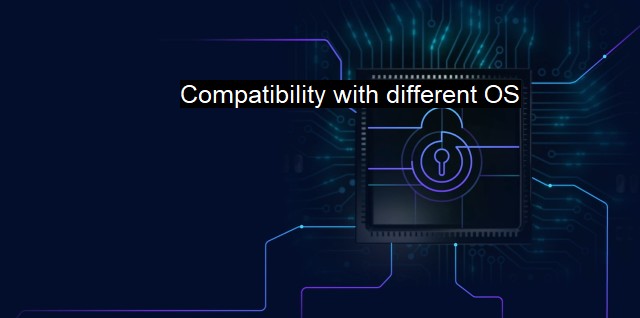What is Compatibility with different OS?
The Imperative Role of Compatibility in Antivirus Solutions for Ensuring Cross-Platform Protection
Cybersecurity and antivirus tools are essential components within any technological infrastructure due to the existence of a myriad of cyber threats that can harm devices and the valuable data they hold. The term "Compatibility With Different OS" within this context refers to the ability of cybersecurity or antivirus applications to effectively function on different operating systems (OS) such as Windows, MacOS, Linux, and other diverse mobile or desktop platforms. This compatibility is essential for their effectiveness and broader coverage across various technological ecosystems.When we use electronic devices, they come with a unique operating system that dictates the manner the hardware and the software interact with each other. Changing this software can be a chaotic ordeal, causing some functionalities to fail, or in some cases, the device could stop functioning altogether. Hence, the cybersecurity product introduced must be compatible with the system used in a given infrastructure or device. The antivirus or cybersecurity software used should be able to interface correctly with the device's OS, regardless of how minute the core functionalities of that system may be. This covers all modules, ranging from initiation on startup to the performance of administrative activities including scans, halting unauthorized activities, updates, interaction with other software, and a crucial fact, not impacting the performance of the device negatively.
Antivirus software is generally modeled to understand the way threats approach various systems. Diverse operating systems have variant susceptibilities, and cyber threats tend to exploit these weaknesses differently. Having an antivirus that understands how to identify, isolate, and remediate a security threat in accordance with the nature of an operating system is of paramount importance. Having software tailored to the structures and functionalities of an OS provide a further layer of protection against these threats as it would ensure the smooth operation in carrying out cybersecurity tasks.
Compatibility in the context of antivirus and the operating system additionally extends to the prevention and detection of Vulnerabilities. Each operating system comes with its own set of vulnerabilities which hackers exploit various techniques to infiltrate them. Therefore, cybersecurity companies create antivirus software that is compatible with a wide array of operating systems. Compatibility ensures that vulnerabilities within individual operating systems can be effectively managed and protected to prevent any exploits infiltrating the network defense.
On the other hand, cloud storage systems, which form an integral part of both business and personal storage solutions, also need security measures in place. Given the OS-agnostic nature of the cloud, it becomes necessary for cybersecurity measures to be fully compatible with these platforms. Here, compatibility implies the efficacy of the cybersecurity measures in affording the highest level of protection against both external and internal threats on these platforms.
In our digital age, the stakes are quite high as security transcends boundaries. Therefore, the factor of "Compatibility with Different OS" cannot be undermined when it comes to enhancing the effectiveness of cybersecurity measures. Having antivirus and cybersecurity applications that are extensively compatible across various platforms is critical and serves as one of the foundational pillars in their design. Beyond the basic functionality of these tools, their comprehensive compatibility ensures consistency and extensive coverage in protecting electronic devices or networks, irrespective of their operating system.

Compatibility with different OS FAQs
What operating systems are supported by the antivirus software?
The antivirus software typically supports a wide range of operating systems including Windows, macOS, Linux, Android, and iOS. However, you should always check the compatibility requirements before purchasing any antivirus software.Is it necessary to use different antivirus software for different operating systems?
It depends on the antivirus software you choose. Some antivirus software is cross-platform and can be used on multiple operating systems, while others are specifically designed for one operating system. You should always check with the vendor to ensure that the antivirus software you purchase is compatible with all the operating systems you need to protect.Can I use an antivirus software on an older operating system?
It may be possible to use antivirus software on older operating systems, but compatibility may be limited. Some antivirus software may only work on newer operating systems or require specific system requirements. You should check the compatibility requirements before purchasing any antivirus software.What happens if I install an antivirus software that is not compatible with my operating system?
If you attempt to install an antivirus software that is not compatible with your operating system, the installation may fail or the software may not function properly. This can leave your computer at risk for cybersecurity threats. It's important to always verify that the antivirus software is compatible with your operating system before installing it.| | A | | | B | | | C | | | D | | | E | | | F | | | G | | | H | | | I | | | J | | | K | | | L | | | M | |
| | N | | | O | | | P | | | Q | | | R | | | S | | | T | | | U | | | V | | | W | | | X | | | Y | | | Z | |
| | 1 | | | 2 | | | 3 | | | 4 | | | 7 | | | 8 | | |||||||